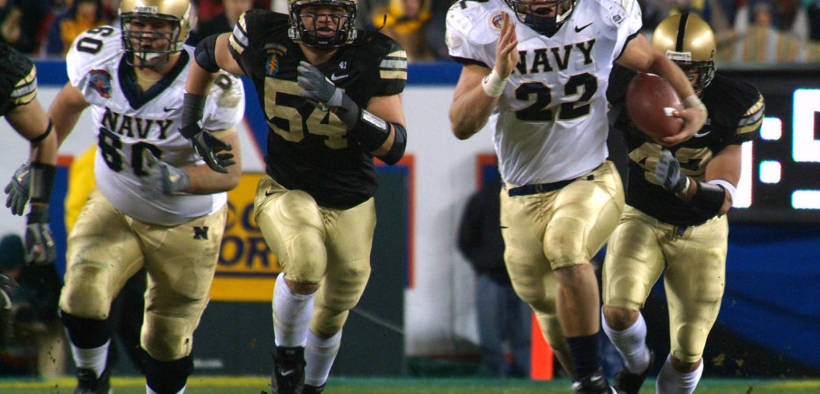Democratic Senators Intend to Create Bill of Rights for College Athletes

“The NCAA has failed generations of young men and women even when it comes to their most basic responsibility — keeping the athletes under their charge healthy and safe. The time has come for change.”
Universities champion their athletic programs to summon school pride, but with the coronavirus pandemic jeopardizing fall sports seasons, schools are putting pressure on their teams to return. A group of 11 Democratic lawmakers — including presumed vice presidential nominee Sen. Kamala Harris, D-Cali. — is creating legislation considered the College Athletes Bill of Rights, designed to protect student players.
The ultimate goal of the bill is to codify protections for student athletes concerning ability to receive monetary payment, medical coverage, and access to revenue sharing agreements, The Associated Press reported. The effort is led by Senators Cory Booker, D–N.J., and Richard Blumenthal, D–Conn.
“As a former college athlete, this issue is personal to me,” said Booker, a former Stanford football player. “The NCAA has failed generations of young men and women even when it comes to their most basic responsibility — keeping the athletes under their charge healthy and safe. The time has come for change.”
Congress has taken a particular interest in collegiate programs as institutions begin to reopen for the fall semester. In the Senate, judiciary and commerce committees have summoned officials from universities and the N.C.A.A. to explain why some some athletes were forced to sign liability waivers when returning for the new academic year.
Fighting Systemic Racism
For the National College Players Association (NCPA), a group that advocates for player rights, the College Athletes Bill of Rights is sorely needed, CNN reported.
”The push to restart college football during the COVID-19 pandemic without the enforcement of uniform best practice standards in pursuit of football dollars that the players themselves will never touch is just one more example of the exploitation college athletes endure under institutions of higher education,” said Ramogi Huma, executive director of the NCPA.
The proposal would also be a step toward reducing racism within collegiate sports, another mission of the NCPA. In Division I football, for instance, nearly 50% of players are black, but organizational leadership is white, POLITICO reported. Among head coaches, 82% are white; 79% for athletic directors; and 53% for assistant coaches.
“We can’t return to business as usual — where a multibillion dollar industry lines the pockets of predominantly white executives all while majority-Black athletes can’t profit from their labor,” said Sen. Chris Murphy, D–Conn.
Asking for Help
Democratic senators are also interested in how pay can be reformed among college sports. In October, the NCAA Board of Governors approved a motion to allow student athletes to be compensated for “use of their name, image, and likeness,” CNN reported. However, implementing the new idea will require the three separate divisions to create rules to regulate it, a prospect that is slow-moving.
The College Athletes Bill of Rights could speed that up by making it a federal law. The bill would give players permission “to market their name, image, and likeness (NIL)” with minimal restrictions and for the National Collegiate Athletic Association to be prevented from “restricting or regulating athlete compensation.”
Furthermore, the bill, which has not yet been drafted, would codify health and safety standards while also introducing financial assistance for injuries obtained while playing for universities.
The NCAA, in recognizing the enormity of reforming its player regulations, courted Congress for help. California, Florida, and Colorado have already passed similar bills to allow for students to earn money from endorsement deals and the use of their names and images. The NCAA is asking for an antitrust exemption, which could be a sticking point in future negotiations.
‘A Really Big Pickle’
There is also a question of whether university athletic programs can afford to bear more costs that would come with the College Athletes Bill of Rights. Already the prospect of not holding a fall football season has some institutions weighing the cost of lost revenue versus public health risks, POLITICO reported.
“I think in some respects our worst dreams have come true,” said Nancy Zimpher, chancellor emeritus of the State University of New York and member of the Knight Commisson on Intercollegiate Athletics. “How could we possibly pit the financial losses of not playing football this fall against the health and safety and general welfare of our student athletes? That appears to be what it’s coming down to.”
Revenues from previous years have been exhausted on coaching salaries and venue upgrades, she said, putting programs in “a really big pickle.” The Knight Commission found the NCAA’s Football Bowl Subdivision spent 60% of its 2018 revenue on salaries, benefits, facility upgrades, and equipment.
The realization that sports programs cannot sustain themselves without a football season this fall has people adopting a mindset of “We can’t afford not to play,” Zimpher said.
Democratic senators intend to properly put forward the College Athletes Bill of Rights in the next few months, Booker’s office told CNN. It will join other legislation already put forward with a similar goal in mind. A vote would optimistically be scheduled for sometime in January.
In June, Sen. Marco Rubio, R–Fla., introduced the Fairness in Collegiate Athletics Act, which also allows for students to be paid for endorsement deals. Under Rubio’s bill, the NCAA would receive federal antitrust protection with oversight from the Federal Trade Commission.















